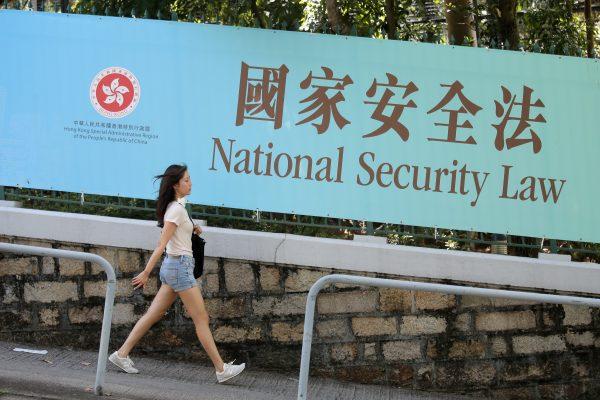Surveillance in Hong Kong: The Rise of Informants and Its Consequences
Since the introduction of the contentious national security law in Hong Kong in 2020, a new dimension of societal oversight has emerged. Informants,assigned to monitor dissent and potential threats,have become increasingly prevalent within the city’s social structure. As authorities tighten their grip on freedom of expression and pro-democracy initiatives, reports indicate that these informers infiltrate various aspects of daily life, fostering an environment rife with fear and suspicion among residents. This article examines the proliferation of informants in Hong Kong, their roles within society, the implications for civil liberties, and how this phenomenon affects a city struggling with its identity amid rising authoritarianism. Through insights from both informers and those impacted by this surveillance culture, we aim to illuminate the unsettling reality faced by individuals living under constant scrutiny.
The Security Law’s Impact: Understanding Informant Culture
The implementation of controversial national security legislation has substantially altered civil liberties dynamics in Hong Kong. With this law’s enforcement comes an increased visibility for informants who now play a crucial role in maintaining order at the expense of public trust. reports suggest that these individuals are embedded across various sectors—monitoring workplaces,educational institutions,and neighborhoods—where civic duty often blurs into betrayal.
While proponents argue that using informers is essential for preserving social stability, critics contend it cultivates an atmosphere steeped in paranoia. Many residents find themselves navigating a reality where they are encouraged to spy on one another—a situation leading to:
- Self-censorship: Individuals may refrain from voicing their opinions openly.
- Distrust among neighbors: Communities fracture as friends become potential sources for reporting.
- A chilling effect on activism: Those advocating for political change face increased risks.
| Aspect | Impact |
|---|---|
| Civic Sentiment | Erosion of trust due to fear |
| Sociopolitical Climate | Diminished community cohesion |
Examining How State Informants Erode Civil Liberties in Hong Kong
The rise of state-sanctioned informants has ignited intense discussions regarding civil liberties’ decline amidst escalating goverment surveillance efforts. Evidence suggests that these operatives gather intelligence on dissenters throughout society—creating an environment where fear stifles free expression. Consequently, many citizens engage in self-censorship; they limit participation in protests or public discussions out of concern over possible repercussions from authorities.
This culture surrounding informants extends beyond individual anxiety—it permeates community interactions while suppressing civic engagement altogether. Key issues include:
- A chilling effect: Heightened fears hinder political dialog and undermine democratic involvement.
- Erosion of trust: Relationships within communities suffer as suspicion grows about who might be reporting activities to officials.
- An increase in legal risks: Activists face greater dangers related to prosecution based on information provided by informers.
Navigating this complex landscape raises critical questions about balancing security with personal freedoms—fundamentally altering civic life’s fabric within what was once a vibrant metropolis.
Strategies for safeguarding Privacy and Freedom Amidst Surveillance Expansion
The intensification of governmental monitoring necessitates proactive measures from individuals seeking to protect their privacy rights and personal freedoms effectively.
Employing encryption tools (such as messaging apps featuring end-to-end encryption) is vital for ensuring private conversations remain secure against unauthorized access.
Utilizing Virtual Private Networks (VPNs), which mask online activities from prying eyes while browsing can enhance anonymity significantly.
regular software updates alongside robust firewalls further strengthen defenses against cyber intrusions.
A complete understanding regarding one’s digital footprint is equally significant; thus, minimizing unnecessary data sharing (especially across social media platforms) reduces vulnerability levels considerably.
Users should routinely assess privacy settings opting towards more restrictive configurations limiting exposure risk
Incorporating practices like anonymous browsing and staying informed about evolving legislation affecting privacy rights helps grasp broader implications tied directly back into surveillance concerns
Understanding local laws—including what data can be collected without consent—is fundamental when striving towards autonomy amidst pervasive monitoring environments.
Conclusion: The Ongoing Implications Of Surveillance In Hong Kong Society Â
The enforcement surrounding Hong Kong’s national security law continues generating significant debate both locally & internationally.As claims arise stating “we’re everywhere watching,” profound implications emerge concerning privacy,dissent,& free speech.This pervasive culture not only influences individual movements but casts long shadows over regional civil liberties.As reports detailing informer activity surface regularly,the world watches closely questioning how such measures will reshape societal structures & future prospects within this global city.The ramifications stemming from such laws extend far beyond borders prompting necessary dialogues around governance,human rights,& state power roles amid our interconnected world.




